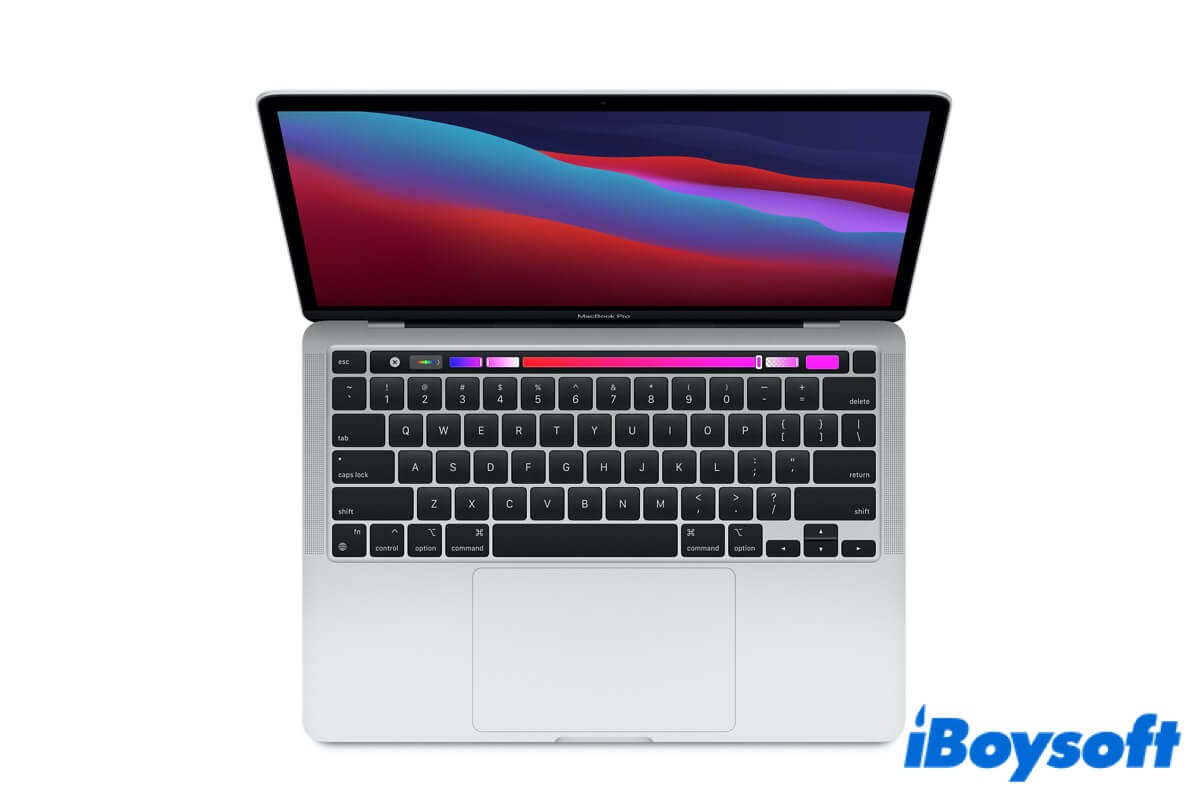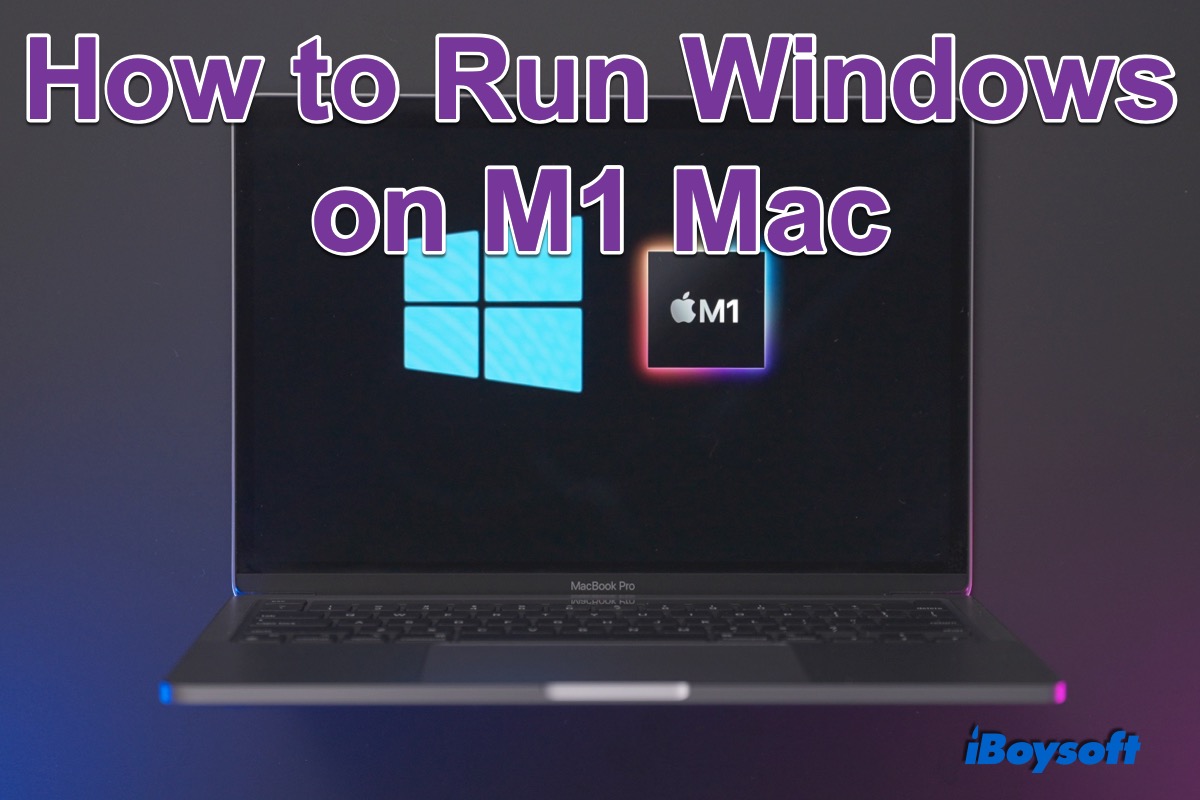Apple released its first Mac models with Apple silicon in late 2020. It shows Apple's transition from the Intel-based Macs to Macs built with its self-designed M1 chip.
This breakthrough brings unprecedented experience and challenges for Mac users as the system on a chip is new stuff that never has.
So, you may have some questions about the new Apple silicon, such as "Is Apple M1 really that fast?", "Is Apple silicon better than Intel?", "How do I know if my Mac is Apple silicon?". Don't be confused. This post will give you the answers and an overview of the Apple M1 Mac.
![]()
Source: Explica. co
A brief overview of Apple silicon Mac
Unlike the previous Intel-based Macs, the Apple silicon Mac no longer uses the multiple Intel chips but replaces them with a specific system-on-a-chip architecture.
This ARM-based silicon chip combined the features of the CPU, I/O, security, memory, etc., bringing a new level of performance and efficiency for Mac machines.
Is Apple M1 Mac really that fast?
The answer is Yes. With the revolutionary Apple silicon, Macs improved with leading performance and incredible efficiency. Here are the reasons why is M1 Mac so fast.
Having greatly enhanced CPU
An Apple silicon chip features two types of cores: high performance and high efficiency. That allows the Mac computer to crush tasks with the least amount of power and outstanding performance.
With fast integrated graphics
The eight powerful cores in the M1 chip allow it to run almost 25,000 threads at the same time. And the ARM-based silicon chip has 2.6 teraflops of throughput. So the GPU can deal with complicated image processing demands in an easy way.
![]()
Source: From Apple.com
Using accelerated Machine Learning (ML)
The Apple silicon empowers the Apple Neural Engine to the Mac, which enables up to 15x faster machine learning performance. With Machine Learning accelerators in the CPU and GPU, an Apple M1 Mac shows up far quick task processing ability than any other Mac models ever have.

Refurbished Mac Explained: Everything You Should Know in 2022
This article tells you about refurbished Mac, including what is the refurbished Mac, the downsides of it, and why and where to buy a refurbished Mac. Read more >>
Weak points of Apple silicon Mac
Though the ARM-based Mac indeed brings faster performance and powerful functions, it also has some weaknesses.
Poor third-party apps compatibility
Since the processor and the memory management on M1 is different from that of Intel, the operation code varies. So, it may bring incompatibility problems for programs and applications on Mac, especially for those third-party applications. And there is no Bootcamp on M1 Mac, you can try some Windows virtual machines for Mac as alternatives.
To fix the incompatibility problems, Apple introduced Rosetta 2 software. It is used to enable the programs that support Intel-based Macs to be compatible with ARM-based M1 Macs. Here is how to install Rosetta on M1 Mac.
However, Rosetta 2 only works to bridge the transition between Intel and Apple processors. It can't change the M1 architecture at all. Incompatibility issues will still occur when some programs and software running on M1 Mac.

Tutorial on How to Run Windows OS & Apps on Apple Silicon Mac
This post introduces different methods to run Windows on M1 Mac, including virtual machine, emulator, and cloud server. It provides detailed steps to follow. Read more >>
Facing excessive SSD wear issues
Since the Apple silicon with an 8-core CPU and a unified memory architecture, it's been tested that the internal SSD of an M1 Mac undergoes high writes in a short time. This issue is apparent on M1 Macs with 8GB of RAM.
The M1 chip enhances Mac's performance, but unfortunately, it will also bring excessive SSD wear to your M1 Mac.
Apple silicon Mac vs. Intel Mac
As mentioned above, Apple silicon Macs have faster performance. But the Intel-based Macs have performed well too over the years. So, is an Apple silicon really better than Intel? Let's do an Apple M1 vs. Intel i7 (and other Intel chips) discussion.
![]()
For the performance, the high integration and enhanced cores in the M1 chip improve the performance and efficiency of a Mac, which brings a smoother and faster operating experience for users when compared with an Intel-based Mac.
In other words, a Mac with Apple silicon is faster in proceeding with a command than an Intel-based Mac. Or an Apple M1 Mac handles more tasks when compares to an Intel-based Mac at the same period.
But in terms of software compatibility, the M1 Mac is far worse than the Intel one. The powerful M1 chip makes trouble for many software developers to upgrade their products to be compatible with M1 computers in time.
Anyway, Apple has begun to shift from the Intel processors to the silicon chip and has kept on making adjustments and improvements to its Apple silicon. So, tend to use an Apple M1 Mac may be the right choice.
Which Macs use Apple silicon?
Though Apple rolled out Macs with Apple silicon at the end of 2020, limited Mac models have M1 chips.
Here is the list of Mac machines with Apple silicon:
- MacBook Pro (13-inch, M1, 2020)
- MacBook Air ( M1, 2020)
- Mac mini (M1, 2020)
- iMac (24-inch, M1, 2020)
![]()
Related posts:
MacBook for Students: How to Choose a MacBook for Studying?
ARM VS. x86: What Notebook/Desktop Users Should Know?
How to recover lost data from M1 Mac?
How to boot into M1 Mac Recovery mode?
How to read and write NTFS drives on M1/M2/M3 Mac?
The Latest MacOS Update and Apple Silicon Transition
Error: The ARM64 Architecture Is Required for This Software M1/M2/M3 Mac
FAQs
- QHow do I know if my Mac is Apple Silicon?
-
A
You can open the Apple menu > About This Mac to check the processor of your Mac under the Overview tag.
- QIs M1 faster than i9?
-
A
There's no absolute answer. M1 has faster single-core performance while i9 has faster multi-core performance. M1 is vastly more efficient than i9 in single-threaded performance.
- QIs M1 silicon better than Intel?
-
A
In terms of performance and future trends, M1 silicon is better. It has higher performance and power efficiency when compared to the Intel chip. Because Apple silicon has enhanced CPU cores and GPU capability on the basis of the former Intel processors. And Apple will replace the Intel chips with their own silicon chip on more and more Mac machines.
- QDoes Mac Pro use Apple silicon?
-
A
No. So far, only four Mac models with Apple silicon, including MacBook Pro, MacBook Air, Mac mini, and iMac. Maybe Apple will realize the Apple silicon transition to Mac Pro computers soon.